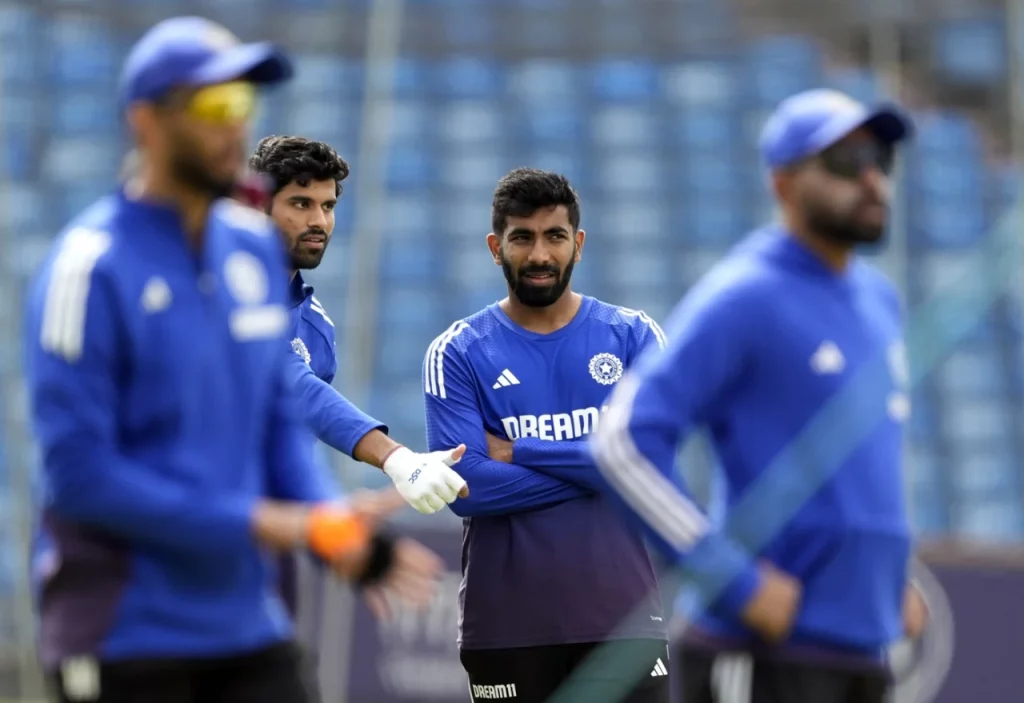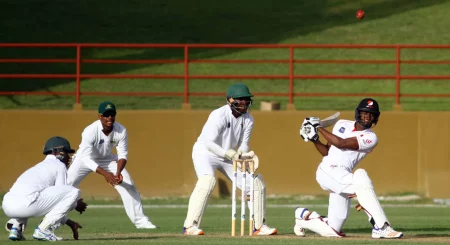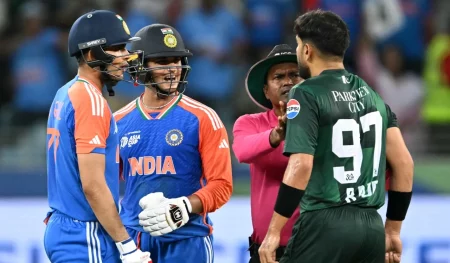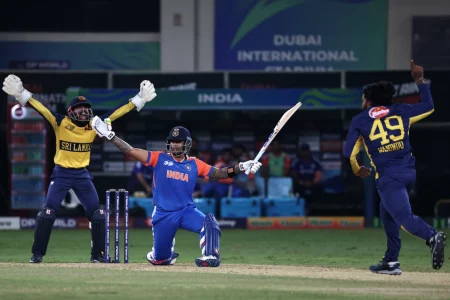The world is moving towards shorter formats of the game, but for some reason, the peak honour in cricket still remains representing one’s side in the longest format. Not many would think twice when offered to lead their team in red-ball cricket, but Jasprit Bumrah is unlike them.
With the talent he possesses, the biomechanics of his action that make him injury-prone, and his history with those injuries, he knows he can’t have it all. Speaking in an interview for Sky Sports by Dinesh Karthik, though, Bumrah’s tone had no hint of FOMO.
He revealed the reason why he wasn’t an automatic choice for leading India in Tests is that he needed to be smart with his workload management, and that’s exactly what he communicated to the BCCI.
“There’s no fancy story to it,” Bumrah said. “There’s no controversy or headline. I wasn’t sacked, I wasn’t overlooked. I had already spoken to the BCCI about my workloads, especially with a five-Test series coming up.”
“I’ve spoken to the people who’ve managed my back. I’ve spoken to the surgeon as well, and we came to a conclusion that I have to be a little more smart,” he said. “I called the BCCI and said I don’t want to be looked at for a leadership role. I wouldn’t be able to commit to all five Tests. It’s not fair to the team to have a captain for three Tests and someone else for the other two.”
With Rohit Sharma hanging up his boots in red-ball cricket last month, Shubman Gill will lead the Indian side in Tests, and his first assignment will be a daunting task of taking on the English side.
Bumrah has made it clear that he wants to play as much cricket as he can, and for that, he will need to sit out some games. As a captain, he wouldn’t have the liberty of opting out of games.
“Three Test matches is what I’m looking at. The first is definitely on, the rest we’ll see depending on how my body responds,” he said. “I don’t want to be in a desperate scenario. If I were captain, I couldn’t just dictate that I’ll play three matches. That doesn’t send the right message.”
Bumrah has struggled with a stress-related back injury a few times in the past, his most recent coming in the Border-Gavaskar Trophy earlier this year.
Following his injury during the Sydney Test in the BGT, Bumrah made his comeback during the recent edition of the Indian Premier League. He took 18 wickets at an incredible average of 17.55. Despite being a different format altogether, Bumrah believes his time in IPL helped him warm up for returning to the longest format.
“So even during the IPL, we had spoken to the trainers and physios, what do we have to do, how do we slowly increase our weekly workload? We were doing that in IPL,” Bumrah said. “We don’t just bowl four overs. We bowl six to eight overs. Then we have a weekly load and warm-up. Even before the game, we try and squeeze in those overs.”
“So, eventually, by the time we reach here, we are at a decent level. From here, we still have some time, so we keep building it up. So, by the time the Test matches come, you’re physically ready and the spike is not too much and the body is used to bowling a lot more overs.”
Concerns regarding Bumrah’s workload management during the BGT gained more traction following his injury during the last Test game in Sydney. Until that point, he had bowled 151.2 overs. Only on two occasions did he bowl more than that.
“It all depends,” Bumrah said when asked if he is ready to bowl a tedious amount of overs against England as well. “Even in Australia, I was the captain in the first game and a little bit in the last game. But for me, it doesn’t mean that this is the plan going forward. Obviously, in Australia, there were certain scenarios that we had to push extra because the series was on the line.
“I was doing really well. And you wanted to be in a scenario where you wanted to give yourself the best chance and the team the best chance, because you would have won that series. WTC [final] was possible.”
“Having said that, whenever you play for India, you never think of, ‘I’m not going to do this. I’m not going to do that, I’m going to protect myself.’ But going further, you have to be smart. Sometimes the workload goes really high. There’s less time between Test matches. It takes a lot out of a fast bowler. So, coming to this series, I’ve prepared really well. But I have to be smart as well because I’m not becoming younger by the day.”



